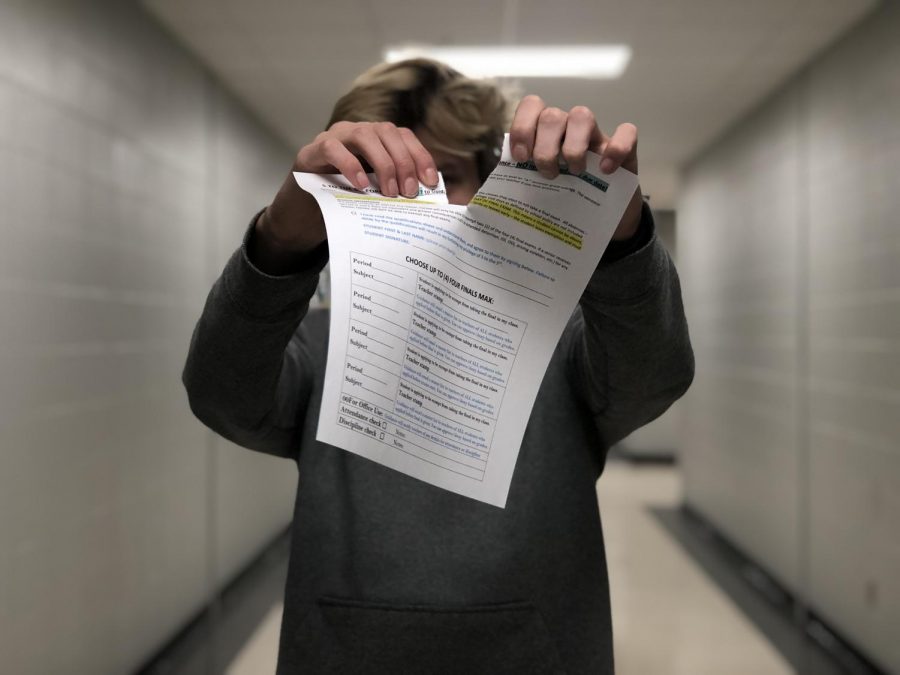Feature picture: <a href=”http://www.freepik.com/free-photos-vectors/background”> Background vector designed by Freepik
There are two types of students: students who puts effort into their work, and students who work unfairly for their grades. According to a Stanford study, 86 percent of high schoolers have agreed that every test taker cheats at some point. Plagiarism.org reports that one in three students have used the internet to plagiarize on an assignment at least once.
David Walpole, one of two deans, is one administrator in charge of disciplining students and helping them through situations. Walpole believes there are many motives to cheating.
“It could be that they were stressed, that they are worried about their grades, or maybe they got lazy,” Walpole said.
Cheating is intolerable, but it has become way easier to do in more recent years. With phones, iPads and the Internet, information is more accessible. Statistics have shown that cheating has increased drastically over the past 50 years. What would happen if the consequences for cheating were slightly more strict, with stricter ways of enforcing these rules on cheating?
At Harvard University, they believe that being caught and put on trial in front of peers for cheating makes it less likely for the student to cheat, due to humiliation. Therefore, they have set up a “honorary council” of trustworthy students to decide the consequences of the one on trial for cheating.
“I think it [a student school board] would be interesting to look into, and see if it’s effective if cheating became more of a problem,” Walpole said.
“I think that if teachers were more studious about where phones and iPads are, if they’re off, cheating would be less of a problem,” junior Zach Peters said.
The growing use of electronics makes it easier for students to cheat. Now with iPads, students have been emailing work to each other. With the integration of Canvas into classes, there are online quizzes. It is very easy for students to click out of these quizzes and look up answers with Safari.
“I think that most people who cheat are just not wanting to put forward the effort to be a successful individually instead of working for it. It does not set them up for success in the future,” junior Luke Baumgartner said.
People that cheat and are not caught often think they can do it again because it was easy. However, the consequences grow when you reach an older age. For example, CNN fired a news editor in London for plagiarism.
According to the CNN editor’s note, “Trust, integrity and simply giving credit where it’s due are among the tenets of journalism we hold dear, and we regret that we published material that did not reflect those essential standards.”
In order to prevent situations such as this at Center Grove, students should be more aware of the consequences for cheating. Possibly if students had to sign a Honor Code paper before assignments, making them aware of the consequences for cheating and agreeing to them, it would decrease the amount of cheating in Center Grove. Implementing a student council to determine the degree of punishment could also be helpful.













